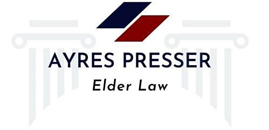Special Needs Planning
Special Needs Planning refers to the legal and financial process of preparing for the future well-being and care of individuals with special needs or disabilities. Often, the goal of special needs planning is to ensure that these individuals can continue to receive the necessary care, support, and financial assistance even after their parents or primary caregivers are no longer able to provide for them. Even when parents and primary caregivers are still there to provide support to their disabled loved ones, Special Needs Planning can help preserve essential need-based government benefits and services.
Special Needs Planning may include:
- Estate Planning. This involves creating legal documents such as Wills, Trusts, and Powers of Attorney to manage and distribute assets according to the disabled individual’s specific needs. Special emphasis is placed on preserving eligibility for government benefits such as Medicaid or Supplemental Security Income (“SSI”).
- Government Benefits. Government benefits such as Medicaid, SSI, and other assistance programs are essential to the care and support of disabled people. Eligibility for these government benefits is need-based, which means there are limits on the recipient’s income and assets. Proper planning ensures that the disabled individual may still be a part of their loved one’s estate plan, without jeopardizing their eligibility for these government benefits.
- Guardianships. In cases where an individual with special needs is unable to make decisions independently, a guardianship may be established to protect their rights and well-being. A guardian is appointed by the court with authority to make decisions regarding the individual’s finances and personal affairs.
- Special Needs Trusts (“SNTs”). Special Needs Trusts are a cornerstone of Special Needs Planning. An SNT is designed to hold and manage assets for the benefit of the disabled individual, providing financial support while preserving eligibility for government benefits. Different types of SNTs include:
- Third Party SNT: A third party SNT is funded by assets belonging to someone other than the disabled individual, often parents or family members. A third party SNT is a vital part of any estate plan for someone with a disabled child or loved one because it provides an inheritance without jeopardizing government benefits.
- First Party SNT (or Self-Settled SNT): A first party SNT (or self-settled SNT) is funded with the disabled individual’s assets, and is often established when the individual receives a settlement or inheritance. A first party SNT still preserves government benefits, but also provides for a payback to the state Medicaid agency after the beneficiary’s death.
- Pooled SNT: A pooled SNT is managed by a nonprofit organization. Assets from multiple individuals are pooled together for investment purposes, while maintaining subaccounts for the benefit of the individual beneficiaries. A pooled SNT can be funded with the disabled individual’s assets or with third party assets. A pooled SNT is a good option for smaller trust accounts or where it is difficult to find a trustee to administer a standard third party or first party SNT.
- Life Care Planning. Life Care Planning involves developing a comprehensive plan for the individual’s ongoing care, addressing factors such as housing, medical care, and quality of life. Life Care Planning accounts for the individual’s unique needs and circumstances. It is especially important for parents and caregivers to be proactive in this planning so that their disabled loved one receives continuity of care in the future.
At Ayres Presser Elder Law, our team is dedicated to the practice of Special Needs Planning as a crucial part of our elder law practice. We understand the unique challenges that special needs and disabled individuals and their families may face, and we are committed to providing comprehensive and compassionate support. Contact our firm today to discuss a plan tailored to your specific needs and goals.

